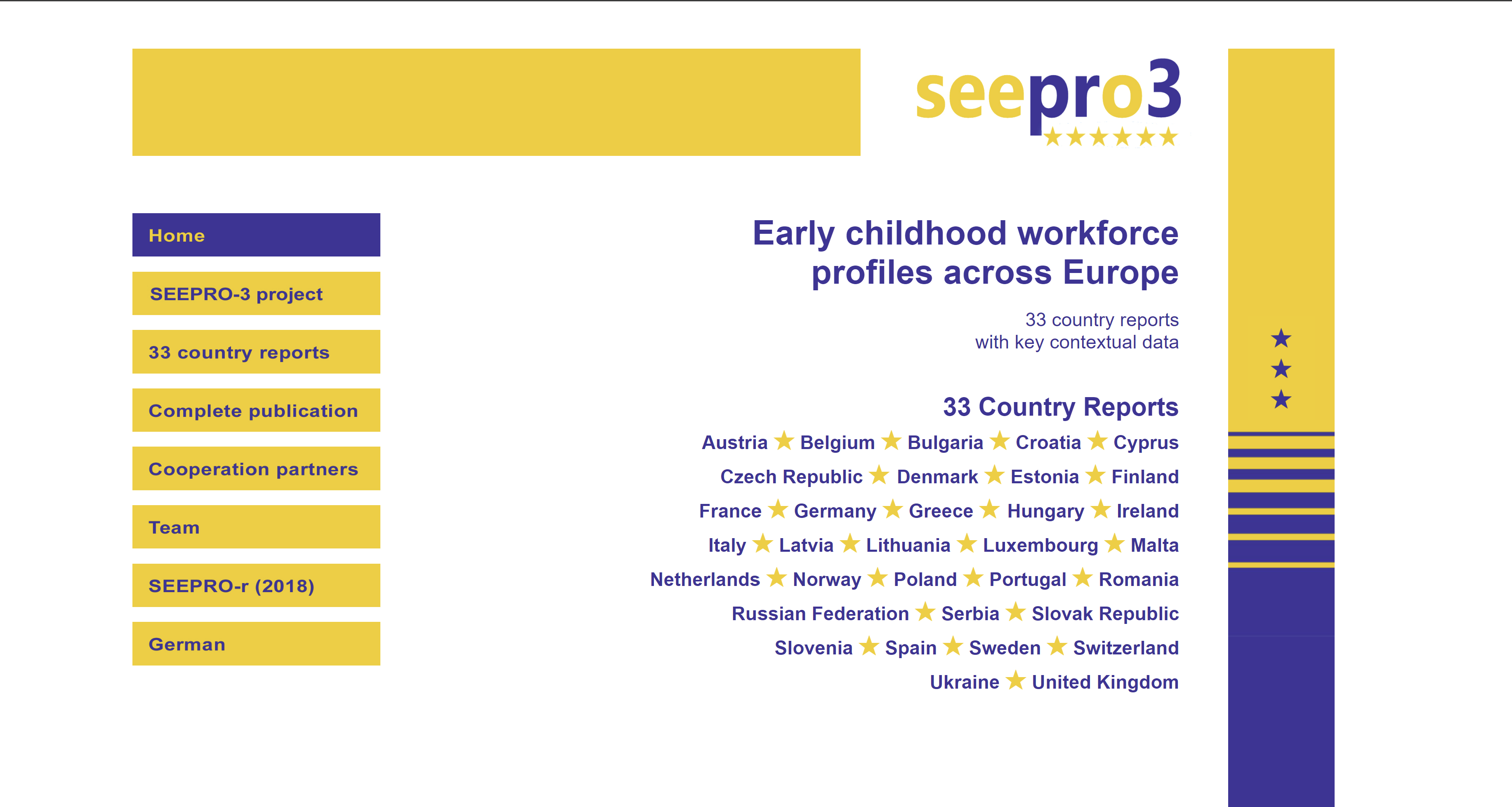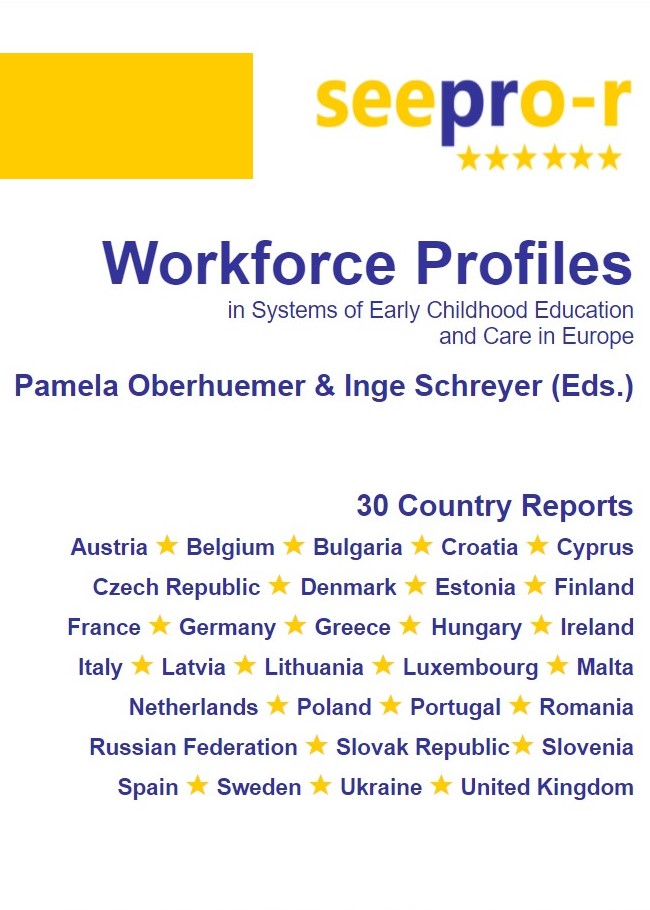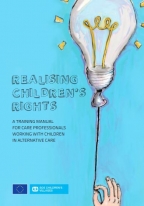Early childhood workforce profiles across Europe - 33 Country Reports

The SEEPRO-3 study presented here is the fourth in a series of research projects based at the State Institute of Early Childhood Research and Media Literacy (IFP) in Munich and funded by the German Federal Ministry for Family and Youth Affairs (Bundesministerium für Familie, Senioren, Frauen und Jugend). The new SEEPRO-3 study¹ focuses on the 27 member states of the European Union and six non-EU countries - a total of 33 countries. Reports on the early childhood workforce and the early childhood education and care (ECEC) systems in Norway, Switzerland and Serbia are presented for the first time in this context.
Learn more about the history of the SEEPRO project.
Throughout Europe, early childhood education and care (ECEC) systems are continuously evolving through expansion and consolidation, with reforms and innovations shaping many countries. ECEC staff are essential for quality interactions, stimulating environments, and supporting children's wellbeing and learning. However, nearly all countries report staff shortages, highlighting the need to update data on the qualifications and competencies of early childhood leaders, pedagogues, and assistants.
This homepage presents results from the fourth SEEPRO-3 project, with documents for 33 countries. Each country's profile includes:
- ECEC Workforce Profile (Country Report): Details on qualification requirements, workforce composition, professional education systems, reform initiatives, research projects, and working conditions. These reports, provided by long-term partners, were compiled based on a research specification and reflect extensive collaboration.
- Key Contextual Data Synopsis (Country-Specific Background Information): Overview of the ECEC system and demographic data, compiled by the project team and reviewed with supplementary data from partners.
Documents are available in English and German, serving a wide audience including educators, government officials, employers, researchers, early years staff, and other stakeholders across Europe and beyond.
Access the country profiles here.
Publication:SEEPRO-3
Year of Publication:2024
Access here



